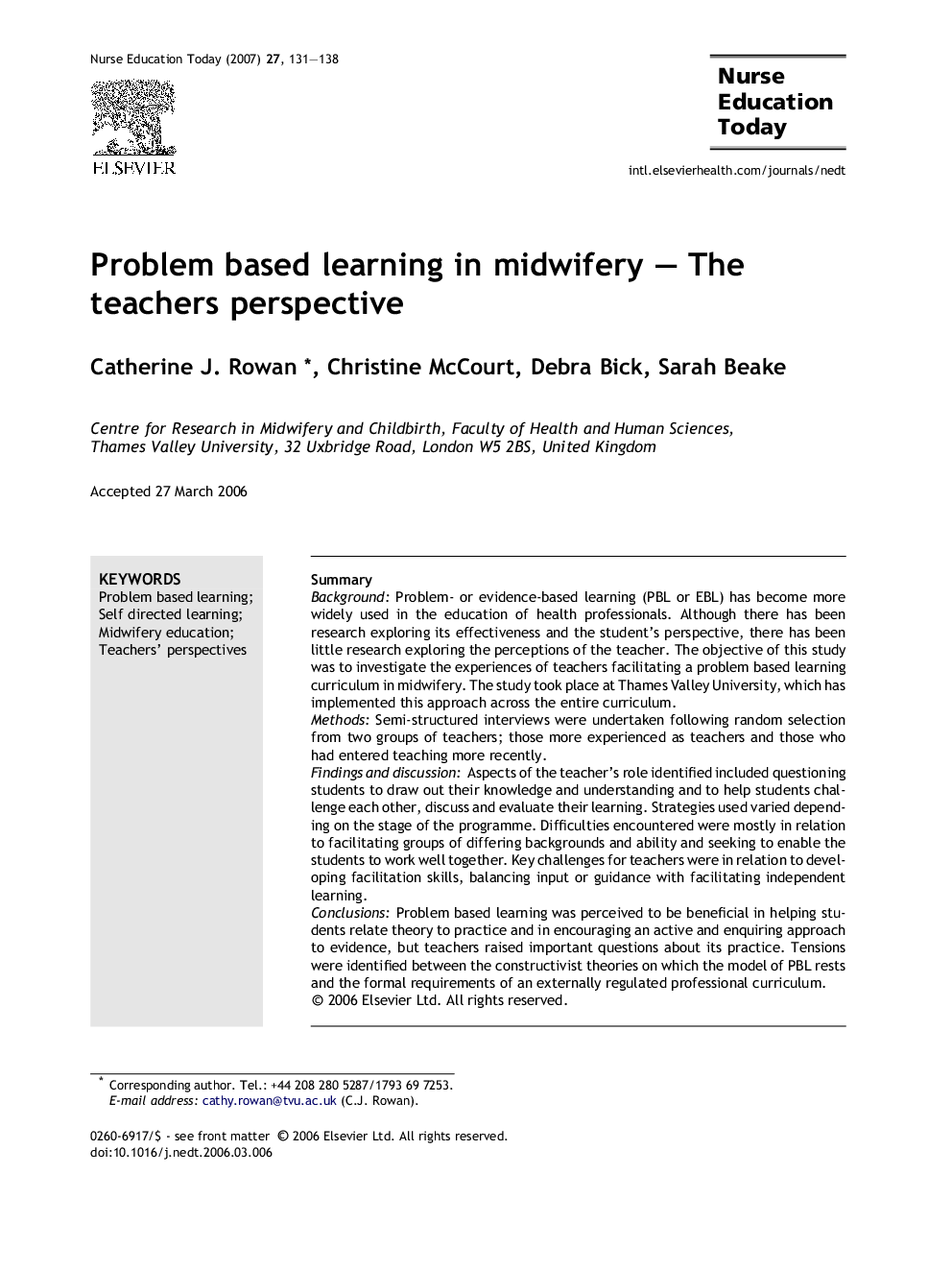| Article ID | Journal | Published Year | Pages | File Type |
|---|---|---|---|---|
| 369413 | Nurse Education Today | 2007 | 8 Pages |
SummaryBackgroundProblem- or evidence-based learning (PBL or EBL) has become more widely used in the education of health professionals. Although there has been research exploring its effectiveness and the student’s perspective, there has been little research exploring the perceptions of the teacher. The objective of this study was to investigate the experiences of teachers facilitating a problem based learning curriculum in midwifery. The study took place at Thames Valley University, which has implemented this approach across the entire curriculum.MethodsSemi-structured interviews were undertaken following random selection from two groups of teachers; those more experienced as teachers and those who had entered teaching more recently.Findings and discussionAspects of the teacher’s role identified included questioning students to draw out their knowledge and understanding and to help students challenge each other, discuss and evaluate their learning. Strategies used varied depending on the stage of the programme. Difficulties encountered were mostly in relation to facilitating groups of differing backgrounds and ability and seeking to enable the students to work well together. Key challenges for teachers were in relation to developing facilitation skills, balancing input or guidance with facilitating independent learning.ConclusionsProblem based learning was perceived to be beneficial in helping students relate theory to practice and in encouraging an active and enquiring approach to evidence, but teachers raised important questions about its practice. Tensions were identified between the constructivist theories on which the model of PBL rests and the formal requirements of an externally regulated professional curriculum.
